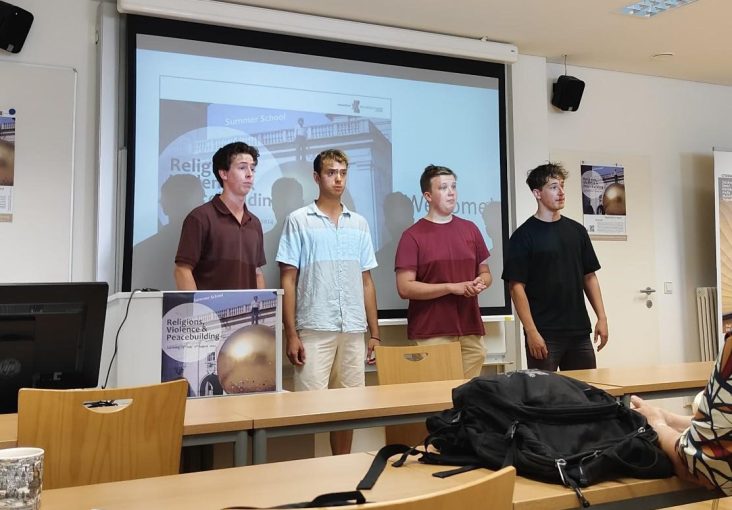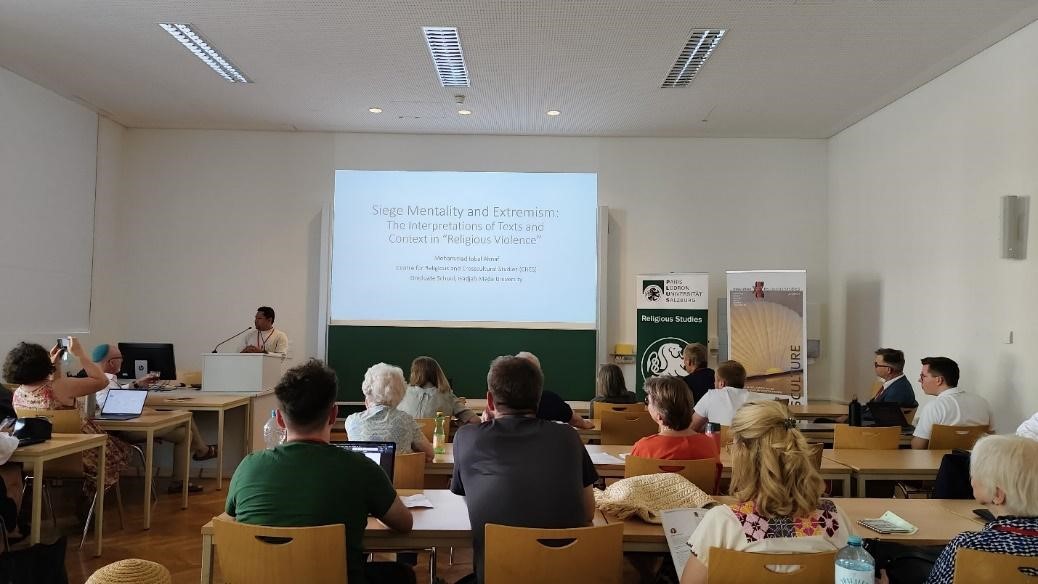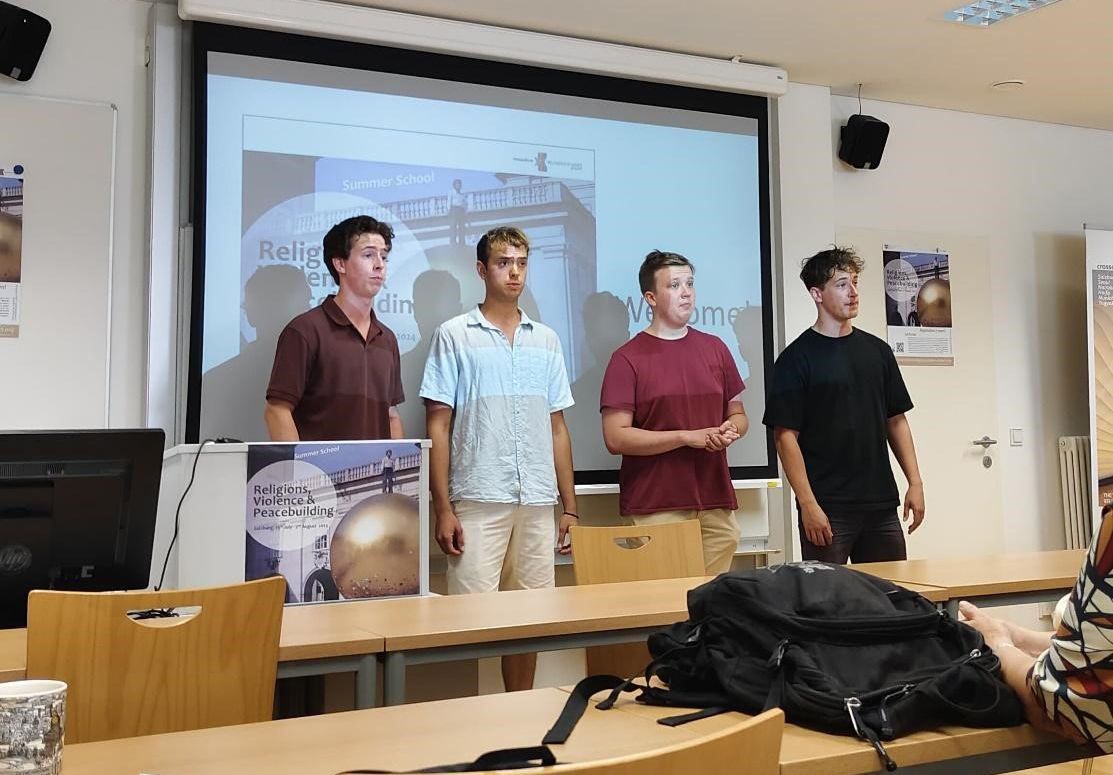
Two Students of Religion and Cross-Cultural Studies (ALB) from UGM Graduate School, Astrid Syifa Salsabila and Ningsih Sepniar Lumban Toruan, along with two ALB lecturers, Prof. Fatimah Husein and Dr. Iqbal Ahnaf, participated in a Summer School in Austria from July 27th to August 2nd 2024.
The following text describes the experiences during the Summer School, as shared by Ningsih Sepniar Lumban Toruan.
For over a week, my friends and I spent time in Austria, specifically in the city of Salzburg, attending the Summer School. This is the third year of this program, and as in previous years, this program also brought students from Indonesia, specifically from the Center of Religious and Cross-Cultural Studies (CRCS) at UGM Graduate School.
This year’s topic for the class was ‘Religion, Violence, and Peacebuilding,’ a familiar topic as CRCS offers a course with a similar title. Although similar, learning should continue and is never complete.
Upon first arriving in Austria, the city looked exactly like it does in movies—that was my initial impression. On the first day, the event was opened by four students who performed a song in an ensemble with very pleasant voices. It’s no surprise, as Salzburg is Mozart’s birthplace, a famous musician still celebrated today. Consequently, many things in the city are associated with Mozart, from cafes and chocolates to museums, etc.
In class, the atmosphere was conducive. This Summer School featured lecturers from various countries focusing on conflict cases in their respective countries, where conflicts are often intertwined with religion. Participants included scholars from Kenya, Korea, Israel, and of course, from Indonesia—Prof. Fatimah Husein and Dr. Muhammad Iqbal Ahnaf. Prof. Fatimah discussed practices of interreligious dialogue in Indonesia as a way to contribute to peace, given Indonesia’s highly diverse context. Dr. Iqbal addressed the significant issue of how the concept of siege mentality is experienced by certain groups and becomes a cause for mobilized violence. Dr. Iqbal provided context on Indonesia as one of the countries with a large Muslim population.
Equally valuable, many participants were PhD students from various countries also researching topics related to religion and violence. They shared their research findings, which could be reflected upon in the Indonesian context and whether their methods could still be applied in research.
This was a rich experience. Knowledge was gained not only from the classes it also included visits to places that could enhance participants’ reflections on religious violence. I visited Stolperstein, an art installation of ‘commemorative stones’ inscribed with the names of Nazi violence victims placed along the streets of Salzburg. There are many discussions and debates about this art installation, but from my reflection, I see that one of its functions is to remind viewers of the harmful impact of violence on humanity.
During this short time, I visited three different cities: Vienna, Salzburg, and Graz. As a student of Religion and Cross-Cultural Studies, we visited mosques in Vienna, various classical and historical churches, synagogues, and Buddhist centers in this predominantly Catholic country.
This activity also aligns with the implementation of SDG Number 4 on Quality Education and SDG Number 17 on Partnerships for the Goals.
Author: Ningsih Sepniar Lumban Toruan
Editor: Arni Wistratun


